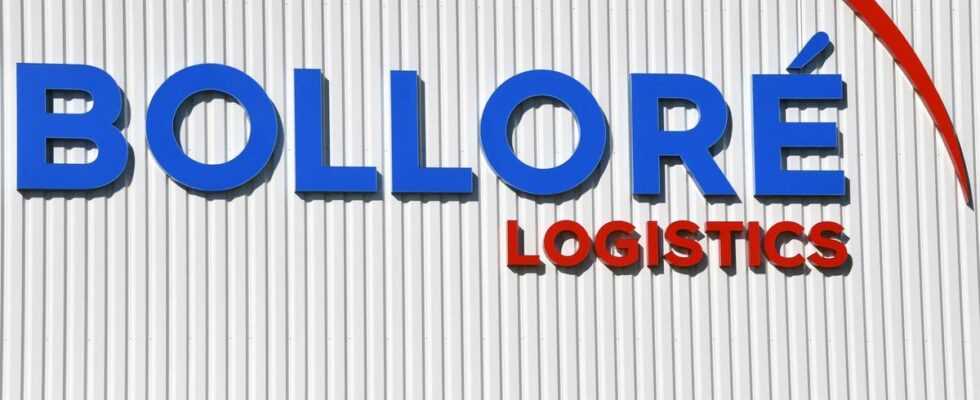The group has reached an agreement with the global container transport giant for 5.7 billion euros.
The Bolloré group is continuing its transformation by withdrawing from logistics activities on the African continent, which had largely contributed to the diversification of the bicentenary family business, by selling them to its former rival MSC for 5.7 billion euros.
Read alsoVincent Bolloré, the real-false start of a business privateer
The announcement comes at the extreme limit of the period of exclusive negotiations between the two groups, which opened on December 20, with the operation to be finalized. “by the end of the first quarter of 2023”, according to a press release published by Bolloré on Thursday evening. The Bolloré Africa Logistics branch, which has infrastructures in more than 20 countries across the continent, including a network of sixteen port concessions, warehouses and road and rail hubs, also aroused the interest of other transport players. maritime, Maersk and CMA-CGM. But Bolloré had granted MSC (Mediterranean Shipping Company) exclusivity after the Italian-Swiss shipowner sent an initial offer of 5.7 billion euros, already.
Based in Geneva, MSC belongs to the Italian Aponte family and claims a fleet of 560 ships and more than 100,000 employees, with the management of terminals in Singapore, Long Beach (California) or Rotterdam. “The acquisition of Bolloré Africa Logistics confirms the MSC Group’s long-term commitment to investing in Africa and strengthening supply chains on the continent, while connecting it to the rest of the world”underlined the shipowner in a separate press release.
2.1 billion euros in turnover in 2021
More profitable than the international logistics of Bolloré, the African logistics branch of the French group remains smaller in turnover, with 2.1 billion euros made in 2020, out of a total of 24.1 billion for the group. It employs more than 20,000 people. Long before the media, logistics and Africa made the fortune of Vincent Bolloré, who in 1986 took control of the SCAC (Commercial Chartering and Fuel Company) when it was privatized.
“The completion of the sale would be subject to obtaining regulatory authorizations and the competent competition authorities as well as the agreement of some of Bolloré Africa Logistics’ counterparties”, explained the Bolloré group. Cyrille Bolloré, who succeeded his father as CEO of the group in 2019, accompanied by Philippe Labonne, CEO of Bolloré Ports, and the former President of the Republic Nicolas Sarkozy, close to the family, had gone to beginning of the year in Abidjan to convince the Ivorian authorities to authorize the sale of strategic assets.
But faced with increasingly expensive investments and growing competition from Chinese operators, Vincent Bolloré’s group wanted to sell it. It was also at the heart of corruption scandals in Togo and Guinea for which the group had agreed in 2021 to pay a fine of 12 million euros to French justice and to be followed by the French Anti-corruption Agency. A judge, however, refused to approve the prior admission of guilt accepted by Vincent Bolloré and two other officials. Their case was referred for investigation. The family business is accused by the French courts of having helped in electoral campaigns in exchange for the allocation of port concessions in these two countries.
A major strategic shift
Via Vivendi, of which Bolloré is the largest shareholder with more than 27% of the capital, the group has embarked on major maneuvers, between the sale of its nugget Universal Music Group (UMG) and the launch of a takeover bid (OPA) on the Lagardère group, which could lead to the creation of a publishing juggernaut, via the merger of Lagardère Publishing and Editis, number one and two in the market in France, and the media.
The group as a whole achieved a turnover close to 20 billion euros in 2021, up 19%, with a net profit of 6 billion euros. He recalls that he will keep a “significant presence in Africa”in particular via Canal+ and investments in communication (Havas), entertainment or publishing, activities in which the group ensures that it “will continue its development”.
